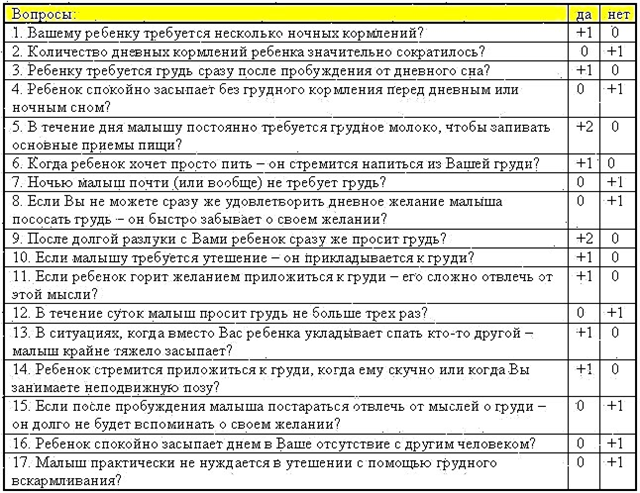Sometimes mothers, because of their own convictions, do not give the baby a breast from birth. This may be due to a fear of losing the firmness of the breast, or there are other doubts about breastfeeding. Then the baby needs artificial feeding, and mothers reasonably question which mixture is better.
There are many points about the quality of infant formula. And no wonder. After all, the future health and development of the child depends on nutrition at a very early age. Breast milk is the best for a baby, but if there is no choice and there is a question in choosing a formula, this matter should be taken seriously.
How to choose a formula for newborns?
The variety of baby food for newborns includes a large number of very different formulas. Naturally, any of them strictly complies with GOST and the standards of the Institute of Nutrition.
It seems that you can get lost in a huge number of colored boxes with mysterious numbers. Therefore, first we will find out what the numbers on the packs of mixtures mean. After all, they inform about a lot. For example, for what age this food is intended.
 The composition of breast milk changes over time. Likewise, the baby's digestive system is undergoing major changes. This is a normal process. Therefore, each age needs its own mixture:
The composition of breast milk changes over time. Likewise, the baby's digestive system is undergoing major changes. This is a normal process. Therefore, each age needs its own mixture:
- "0", "pre" - for newborns, premature babies. For the little ones, in other words;
- «1» - from birth to six months;
- «2» - from six months to a year;
- «3» - for children over a year old.
With a change in the figure, the amount of minerals, vitamins, unadapted proteins increases. The calorie content and satiety of mixtures for children over six months are significantly higher.
Consistency
Everything is clear here. There are either liquid or solid (powder). Which is better?
About 92% of all mixtures in our country are dry. To feed a child, you just need to fill them with boiled water. And follow the instructions for use.
The remaining 8% is liquid. They can be consumed immediately, but must be warmed up. Such mixtures are supplied in special packaging that prevents damage from external influences. The usual volume is 200 ml. It is not a problem for large cities to find such mixtures, but in small cities they may simply not be on sale.
Remember, liquid mixes will last no more than a few days.
It is dry mixes that are of interest. They are easy to store and easy to dose and prepare.
Composition
The vast majority of formulas are made on the basis of cow's milk. Of course, the child's body does not tolerate a full-fledged protein of such milk, so it is processed. It is the processing that is responsible for what the mixture will be.
Types of milk mixtures
The following types of milk mixtures are distinguished.
By adaptability
Adapted milk formulas. Based on cow's milk, the protein of which is specially processed. The fat and carbohydrate components of the mixture are also adapted. Polyunsaturated fatty acids, certain minerals and vitamins are added.
This makes the nutrition for newborns closest to breast milk. But it certainly doesn't replace it. The mixtures are assimilated without problems, therefore they are recommended for the smallest, just born. But the price tag is appropriate - buying them can hit your pocket hard. Liquid mixes can also be tailored.

Adaptability is an indicator of the degree of closeness of the mixture in terms of qualitative and quantitative composition to breast milk.
It is worth noting that some babies do not tolerate cow's milk at all. Then they use special formulas for babies based on goat milk or soy protein isolate.
Highly adaptable. Most suitable for feeding newborns.
 Partially adapted. In composition, they are only partially close to mother's milk. They do not contain demineralized whey, they contain lactose, sucrose and starch.
Partially adapted. In composition, they are only partially close to mother's milk. They do not contain demineralized whey, they contain lactose, sucrose and starch.
Unadapted. They contain primordial casein (cow's milk protein). These mixtures are unleavened (whole milk, for example) and fermented milk (baby kefir, yogurt).
Special mixtures
Certain baby health problems or other factors may require the use of special mixtures.
For premature babies. These mixtures have more protein and calcium. The calorie content is higher than that of ordinary ones. "0" or "pre" on a pack - this is how you can define them.
Fermented milk mixtures. The baby has a digestive disorder, do you give him medication or treat dysbiosis? These mixtures will help.
Anti-reflux mixtures. They are used for frequent excessive regurgitation. Contains starch or locust bean gum. They are designated by the letters AR.
If the baby has constipation, you can use mixtures with gum and lactulose.
Iron-containing mixtures. Usually, such mixtures are prescribed for children over four months old. They are great for preventing iron deficiency and anemia.
According to Russian legislation, such mixtures cannot be called medicinal. It's just that there is more iron in them than in the rest. As an example - "Similak Premium".
Naturally, the pediatrician should prescribe a certain type of treatment if the baby has a low iron content in the blood. So follow it strictly. Do not self-medicate.
Hypoallergenic mixtures. If your toddler is allergic to anything, particularly cow's milk protein, use these formulas. It uses a protein that has been cleaved into peptides and amino acids.
It is perfectly absorbed by the child's body without side reactions in the form of allergies. You will see the letters HA in the name of the mixtures.
 Soy mixes. They are given in cases where there is an allergy to any form of cow's milk.
Soy mixes. They are given in cases where there is an allergy to any form of cow's milk.
Don't worry about the potential harm of soy and its ingredients. There are not enough reliable facts about this. Usually, people who are completely far from science and new research, who buy sunflower oil when they see the inscription “no cholesterol”, tell us about the dangers of soy products, which in itself is comical, given the fact that there is no cholesterol in any plant products.
Similak Isomil is an example of a quality blend.
In addition to feeding exclusively with mixtures, there is also such a technique as supplementary feeding. Usually supplementation is used when the newborn does not have enough mother's milk. Consultation of a specialist in these and other cases will give you an idea of how to choose the mixture.
Trust your pediatrician. It is he who will help you choose the right artificial nutrition, taking into account the characteristics of the baby. You can also give him a budget to spend on the mixture. The doctor will help you pick up something that won't hit your wallet hard. You can find reviews on mixtures on the Internet.
Important little things when choosing a mixture
- you need to feed mixtures based on the age of the child. So, up to 6 months, only entry-level mixtures;
- newborns and infants up to 6 months old should be given adapted formulas. They are most similar to mother's milk in composition, are easily accepted by the baby's digestive system;
- medical mixtures for health problems of the baby can be given once or twice a day. Not more often;
- beautiful ads are cool. But don't be fooled. Read the composition, compare, ask. If you are worried that the composition contains a mixture of canola and palm oils, do not take them at all;
- mixtures with an approaching end of the shelf life are best thrown into the trash. Don't take risks;
- each product has its own place of sale. Better take formula for children in specially designated stores;
- linoleic acid, taurine, carnitine - is all this in the composition? Excellent! Although what infant formula does without them now;
- watch the child. If you see an adverse food reaction, see your doctor. Yes, it is to him, and not to a friend or mother, no matter what specialist you consider her to be. Now, if she has a doctor's diploma in the table, then - please.
Remember that baby food must meet certain quality standards, and each age has its own formula. And you can always look at the rating of infant formula for newborns on the Internet or ask a pediatrician about this question.
The selection of food must be carried out after consultation and examination of the baby by a pediatrician. At the same time, each parent should be familiar with the basic principles for the selection and use of the mixture.
How do you know if the mixture is not suitable?
Prepare for the fact that the first time you will hardly be able to find the right formula for your child. Here you need to search, try. The main thing is to monitor the condition of the child, follow the principles of "newborn under 6 months - an entry-level mixture", and everything will work out.
 Here are the signs, the manifestation of which indicates the need to change the mixture:
Here are the signs, the manifestation of which indicates the need to change the mixture:
- Allergy appeared. Reddish skin, some spots - signs of intolerance to the composition;
- Stool problems. There is something incomprehensible in it and a different color (mostly white and green).
- The baby behaves strangely when feeding, worries;
- Weight gaining too slowly;
- Disturbed sleep at night.
Remember the instructions for use on the packaging and do not forget about the recommendations of the pediatrician.
Formula feeding can hit the family budget hard - it's a fact. But you should not save on feeding.
If you want to save money, then just breastfeed your baby. There is nothing better than breast milk for your baby, there has never been and never will be.



